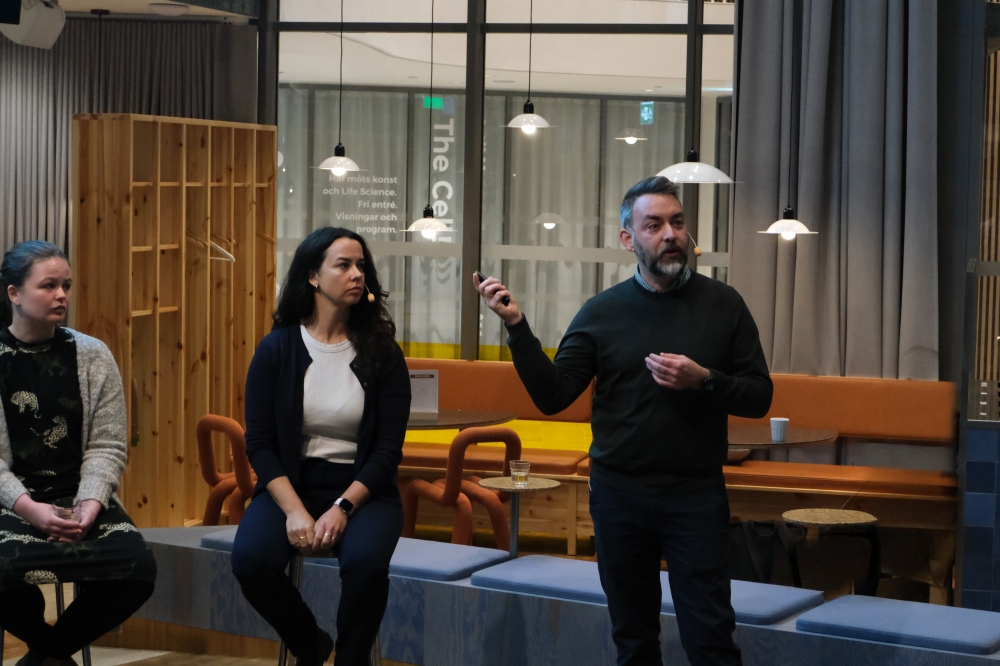Sky High Hopes: Researchers Discuss Vertical Farming and Its Role in Modern Agriculture

On November 14, Urban Deli hosted a breakfast talk with KTH FOOD researchers on the theme of vertical farming. The panel discussed the potential and pitfalls of this innovative type of food production.
The researchers offered their insights on vertical farming from their respective fields, lifting both opportunities and challenges. Elisabet Henriksson, PhD, began by highlighting the possibilities through examples of already established vertical farms. With this method, food can be grown anywhere, and transport routes can be shortened while space is being used in an effective manner. Vertical farming systems can utilize residual heat from neighboring buildings, optimize nutrient delivery through hydroponics, and enhance climate control for year-round production. As a complementary system to traditional farming, these technologies offer opportunities for more sustainable and localized food production.
Loris Mazzaferro, PhD, continued by pointing out significant hurdles for wider implementation, including high investment costs, labor demands, and the need for extensive research and development. The current model struggles with profitability, and primarily produces limited crops like lettuce and basil, which is not sufficient to replace other food systems but rather working as a complement.
Professor Michael Martin then talked about using urban sidestreams and reducing energy demands and emphasized rethinking linear models by maximizing underutilized spaces and minimizing waste, focusing on reuse. He also highlighted the potential of integrating vertical farming with existing spaces to increase efficiency.
Postdoc Maria Bustamante discussed the importance of aligning vertical farming within broader food production systems. She introduced two business models: selling at supermarkets, which requires producing significant volumes of food, and a product-service model where retailers manage the entire cultivation system for consumers. Bustamante also stressed the need for updated policies and partnerships with traditional food producers to enable both sustainability and scalability, as well as the importance of enhancing resiliency and preparedness in the food system to handle disturbances such as conflicts and extreme weather.
The event concluded with a panel discussion, providing food for thought about the potential and limitations of vertical farming to offer solutions for sustainable, localized food production. The researchers discussed how vertical farming and traditional agriculture can work together rather than compete. Vertical farming in combination with other food systems holds great potential for a resilient food future, and the discussion showcased the growing interest in sustainable food technologies and the collaborative efforts required to overcome challenges in the vertical farming sector.
One such example is the collaboration between Urban Deli, KTH and IVL, which is part of the FOCUSE project. It brings research closer to the public and makes the results of the farming projects available, with the hope of inspiring and creating greater awareness of the food system of the future. At Urban Deli in Hagastaden, a greenhouse is available for the public to visit. Read more about it here (ivl.se)

